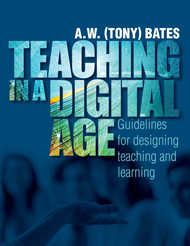
“I found that placing self-published documents in cIRcle is a very effective way at letting the world know about a publication…As an added benefit, the world-wide recognition and awareness of me and UBC increases each time a person finds their way to cIRcle…The download statistics are interesting and one can see where in the world people find your publication useful.”
-Dr. Dwayne Tannant, Professor, School of Engineering, UBC Okanagan Campus
What is cIRcle?
cIRcle’s aim is to showcase and preserve UBC’s unique intellectual output by making materials freely available to anyone, anywhere, at any time on the web. As part of Focus on Research month at UBC, the library is pleased to feature cIRcle at UBC: an open access digital repository for published and unpublished material. cIRcle serves an audience comprised of UBC students, faculty and staff primarily, as well as global research communities. Their mandate is to permanently preserve a wide range of academic materials, make this content openly and publicly available, and to support teaching, learning and research at UBC.
What Types of Materials are Available in cIRcle?
Some examples of the materials stored within cIRcle include academic theses, presentations, articles, conference papers, technical reports, working papers, books, datasets and webcasts. cIRcle aligns with the ‘open access’ movement, which can be defined as research output free of restrictions related to access and privileges. The Olympic Legacy materials are one example of the interesting projects available in cIRcle:
- In 2010, cIRcle captured part of UBC’s unique Olympic legacy showcasing event webcasts and research from UBC scholars and world-renowned guests. It included the Intellectual Muscle: University Dialogues for the Vancouver 2010 Games’ series, developed by Vancouver 2010 and UBC’s Continuing Studies in collaboration with universities across Canada and The Globe and Mail.
cIRcle makes it a priority to preserve all UBC theses, and has retroactively digitized theses dating back to 1919. These are available through Open Collections.
Link to all theses: https://open.library.ubc.ca/cIRcle/collections/ubctheses
Link to first 100: https://open.library.ubc.ca/cIRcle/collections/first100theses
Open Textbook: Teaching in a Digital Age

An exciting recent development within cIRcle is the addition of Dr. Tony Bates’s open textbook, Teaching in a Digital Age. Some of the topics covered in this new publication include:
- What is the science and research that can best help me in my teaching?
- What strategies work best when teaching in a technology-rich environment?
- How do I make choices among all the available media, whether text, audio, video, computer, or social media, in order to benefit my students and my subject?
- How do I maintain quality of teaching, learning, and resources in a rapidly changing learning environment?
Learn more about Teaching in a Digital Age.
How Does cIRcle Support Research?
All cIRcle content is indexed by search engines such as Google and Google Scholar. This enhances the reach and ‘findability’ of materials. cIRcle is also one way for researchers to comply with the Tri-Agency Open Access Policy on Publications: this policy came into effect May 1 2015, with new requirements for funding awarded by the major Government of Canada granting agencies. The three granting agencies are the Canadian Institutes of Health Research (CIHR), the Social Sciences and Humanities Research Council of Canada (SSHRC), and the Natural Sciences and Engineering Research Council of Canada (NSERC). The policy requires that all peer-reviewed journal publications arising from Tri-Agency-supported research are freely accessible online within one year of publication.
To add your research output to cIRcle, contact cIRcle staff at ubc-circle@lists.ubc.ca, or visit circle.ubc.ca/submissions.